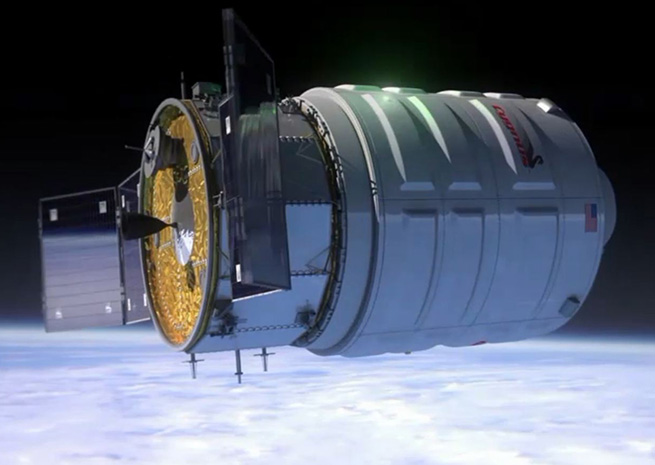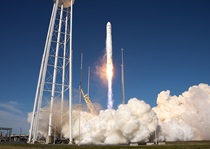
The second of two companies contracted by NASA to resupply the International Space Station is go for launch on Sept. 17.
Orbital Sciences Corp. has partnered with NASA to develop the spacecraft dubbed Cygnus that will be packed with food and supplies for orbiting astronauts, following a script similar to the October 2012 launch by SpaceX. The upcoming mission will also mark the conclusion of the NASA program to develop private spacelift capability that will serve the station in years to come.
Orbital Sciences has been working for years to develop and prove the technology, and hopes for an identical outcome to the SpaceX demonstration flight that NASA Commercial Orbital Transportation Services Program Manager Alan Lindenmoyer proclaimed an “amazing success” during a Sept. 4 media briefing.
“Now, here we are today with the opportunity to reinforce that capability with our second commercial partner,” Lindenmoyer said. The space agency opted to outsource cargo deliveries to the station, providing significant funding and technological expertise to help privatize the effort. “That vision is becoming reality.”
NASA has already paid $285.5 million of $288 million promised, with the balance due upon completion of program objectives—including the delivery. Orbital Sciences has also invested significant, though unspecified sums.
“We look at this as a good investment both by NASA and us,” said Orbital Sciences Corp. Executive Vice President Frank Culbertson, during the media briefing. “We intend to make a commercial go of it.”
The Cygnus craft is slated to dock with the space station Sept. 22, and remain attached for about a month before returning to Earth with a cargo of trash.

Both private firms involved in the program expect to continue supplying the orbiting station for years to come. Culbertson said the company plans to launch its first regular mission within 47 days of Cygnus’ return.
Culberston said the spacecraft may have other missions beyond low Earth orbit in the future, including possible use in support of future missions to Mars.
“Cygnus has the capability to do a lot more than just deliver cargo to the space station,” Culberston said. “We think the spacecraft’s going to be very capable.”



